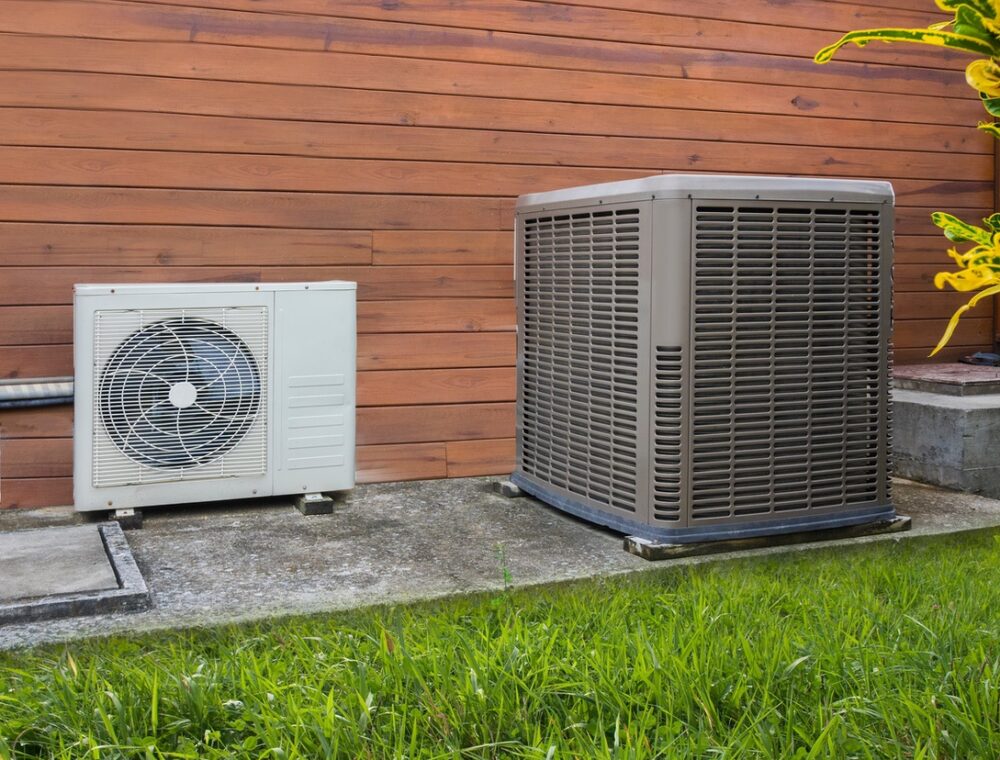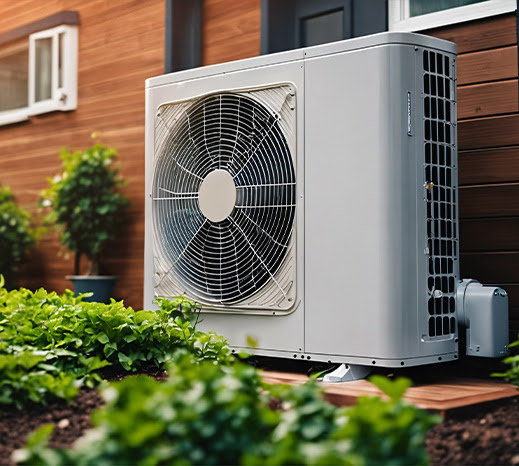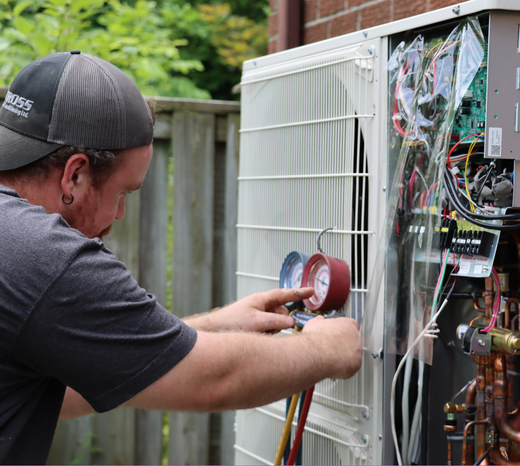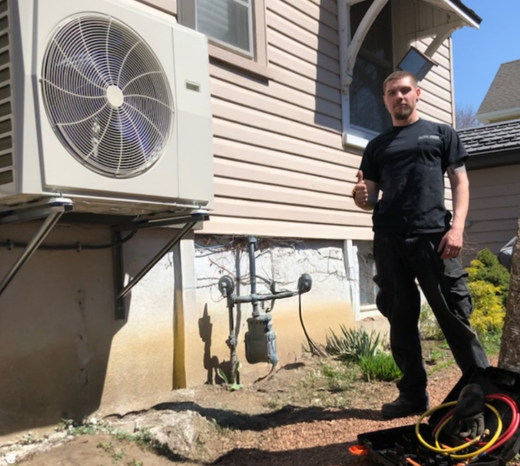Heat Pumps
Cross Heating & Air Conditioning provides high-quality heat pumps for Hanover, Listowel, and Waterloo, Ontario. Let our team show you how these systems can work to improve the environment as well as give your immediate home comfort a boost.
...
Posted by Brad | January 12, 2024
Heat pumps are a popular choice for eco-conscious homeowners. Their ability to efficiently heat and cool homes with minimal environmental impact makes them an appealing alternative to traditional HVAC systems.
Cross Heating & Air Conditioning installs
new heat pumps in Hanover, Waterloo, and Listowel—so we know exactly how good these systems can be for the homes that use them
and the environment at large. Below, we show you the main reasons why heat pumps are eco-friendly as well as convenient and cost-effective for so many Ontario homeowners.
1. Energy Efficiency
Heat pumps are known for their remarkable efficiency. Unlike traditional systems that generate heat, heat pumps simply move existing heat from one place to another, requiring significantly less energy.
In Canada, heat pumps have been found to use
up to 50% less energy compared to traditional heating systems like baseboard heaters. This means that a heat pump is an excellent and immediate way to reduce your household’s energy consumption and contribute to a greener future.
Keeping your heat pump well-maintained is also critical for ensuring its continued energy efficiency.
Find maintenance tips to maximize the lifespan of your residential heat pump here.

2. Fewer Greenhouse Gas Emissions
Traditional heating systems, especially those that burn fossil fuels, emit a considerable amount of greenhouse gases.
Since heat pumps are more efficient (and since they use electricity, which often comes from renewable sources like hydro in Ontario), they have a significantly smaller carbon footprint than many furnaces.
See Also: Heat Pumps vs. Furnaces: Similarities, Differences, & What Is Best for You

3. Use of Renewable Energy Sources
In addition to hydroelectric power, Canada is making considerable strides in increasing its renewable energy capacity when it comes to sources like wind and solar. Some electricity from this kind of infrastructure already powers heat pumps in homes—and the trend is on the rise.
In 2022, about
70% of all electricity in Canada came from renewable sources—and this number is expected to climb to
90% by 2030. This will significantly lower the environmental impact of home heating and cooling, making electric heat pumps even more environmentally friendly.
4. Decrease in Fossil Fuel Dependency
As more electricity in Canada is produced by renewable or non-emitting sources, the widespread adoption of heat pumps will significantly reduce our reliance on fossil fuels like oil, gas, and coal.
This shift is crucial for creating a sustainable energy future and for reducing the environmental impact associated with extracting and burning fossil fuels.

5. Improved Air Quality
Last but certainly not least is the fact that heat pumps contribute to better air quality both indoors and outdoors.
Because heat pumps don’t burn fuel, they don't produce combustion-related pollutants. This means there are no potentially toxic exhaust gases to vent, which keeps cleaner air inside your home and in the surrounding environment.
Heat pumps have other benefits for homeowners too.
Learn about the benefits of using a heat pump here.
Install Your New Heat Pump with Cross Heating & Air Conditioning
The environmental benefits of heat pumps are clear and compelling. They offer an efficient, eco-friendly alternative to traditional heating and cooling systems, aligning with the growing demand for sustainable home solutions.
As we continue to seek ways to reduce our environmental footprint, heat pumps stand out as a practical and effective choice.
Contact our team at Cross Heating & Air Conditioning to get a quote for a new high-efficiency heat pump that you and your family can feel good about using to stay comfortable all year long.
Frequently Asked Questions About Heat Pumps in Ontario
Can heat pumps function effectively in cold Ontario winters?
Heat pumps are increasingly capable of operating efficiently in colder climates, including Canada's diverse weather conditions. Recent advancements in heat pump technology have enhanced their performance, ensuring they remain effective even during the colder months. Remember, selecting the right type of heat pump, like cold-climate air-source heat pumps, is key to their efficiency in colder regions.
You may also want to consider keeping a natural gas furnace in your home to provide effective heating on the year’s coldest days, and rely on your heat pump for energy-efficient heat throughout the rest of the season.
Are there any incentives or rebates for installing heat pumps in Canada?
Yes, various incentives and rebate programs are often available for the installation of heat pumps in Canada. These programs are designed to encourage the adoption of energy-efficient technologies and can significantly offset the initial cost of installation.
One example is the
Canada Oil to Heat Pump Affordability Program, which may provide an upfront payment of as much as $10,000 for qualifying Canadian homeowners who are switching over from oil-based heating methods.
Do heat pumps provide both heating and cooling for my home?
Yes! One of the significant advantages of heat pumps is their versatility. They can provide both heating and cooling for your home. During the winter, they extract heat from the outside air (even in cold weather) and transfer it inside. In the summer, the process is reversed to cool your home, making them a year-round solution for home comfort.
Brad Cross, an accomplished HVAC professional, has made significant contributions to residential air system design and i... more
Related Posts:
When it comes to figuring out the best way to keep cool this summer, your options can be overwhelming. You’re probably alre...
Read More
You know how much we love our heat pumps, we sing their praises basically all year round. Our owner Brad, was even instrument...
Read More
In 2025, heat pumps have firmly established themselves as one of t...
Read More







